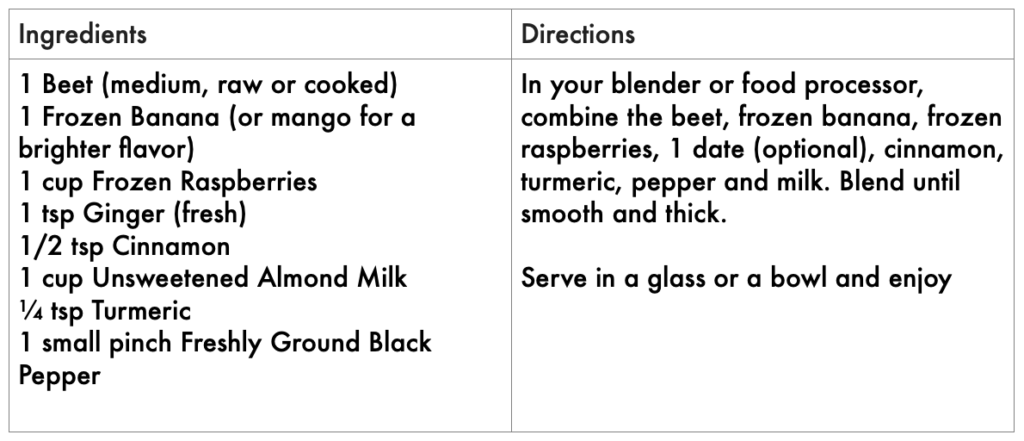Our immune system is composed of a robust front-line defence team. Our white blood cells and proteins called antibodies, all form an alliance to protect our body from foreign invaders. The immune system, after our nervous system, is the most complex organ system in the human body! So it’s important to understand what it takes to keep our immune system supercharged, so you can implement these tips on a routine basis.
“Evolution has arranged that we take pleasure in understanding – those who understand are more likely to survive.” – Carl Sagan
Our body’s defence against infection is composed of two components.
Your First Layer of Defence – Innate Immunity
- Skin acts is a defense barrier
- Mucus traps invaders
- Stomach acid destroys invaders
- Enzymes in sweat have antibacterial compounds
First and foremost, we need to stay hydrated. If we can keep our skin healthy, strong and intact, we’ve got a huge advantage in blocking anything from entering our body. Dried-up skin lacking in hydration cracks, and those cracks are direct openings into our body, giving outside bugs a free pass to slip on through.
Hydration is also important in producing mucus, especially in our nose, mouth, and gut. If the mucus is dried up, or too thick, it doesn’t coat our mouth and nose effectively, and bugs have another easy way in. Especially since the skin in our nose and mouth are very thin.
Stomach acid and enzymes also help in the defence system, and remaining hydrated helps both of those mechanisms.
Eight glasses of water are what is typically recommended, but to get more specific, read our article here on how to calculate your water intake. Remember, 20% of our daily water intake comes from our food, so enjoy your favourite fruits and veggies on a daily basis!
Second Line of Defence – Acquired Immunity
- White blood cells like neutrophils engulf pathogens (think pacman).
- Natural killer cells (another type of white blood cell) help put our cells out of misery if they become cancerous or infected with a virus.
- Specialized white blood cells called B cells make proteins called antibodies.
- Antibodies bind to invaders and can deactivate them, tag them for our natural killers to easily recognize and destroy, or coat them in a gooey coating, preventing them from invading our cells.
Our mucus membranes line our mouth, entire digestive tract, lungs, reproductive and urinary systems, inside breast glands, and even on our eyeballs. That’s a lot of surface area! In fact, our gut alone covers the size of half a badminton court (40 square meters, vs. skin at 2 square meters). So we’ve got a lot of surface area for infection exposure, and our mucosal layer is only one cell layer thick. Meaning we need to have a very effective defence team.
Luckily, we have our A-Team. Our mucosal membranes contain the antibodies Immunoglobulin A (or IgA). In a study, researchers found that those who ate cooked white button mushrooms every day for one week boosted their IgA production by 53% compared to those who did not have any mushrooms. In week two, this group stopped eating mushrooms yet sustained the benefit, and their IgA production measured at 56% higher than the control group, meaning the benefits were maintained for one week (but by week 3, the mushroom group fell back to baseline).
Boosting your A-Team’s numbers by incorporating mushrooms into your routine diet seems like an effective way to prevent foreign invaders from getting into our bodies. This study used regular button mushrooms, but there are others out there that can be even more helpful. Shiitake, oyster, maitake, and lion’s mane can be found in grocery stores and make delicious meals. Medicinal mushrooms for immune support also include chaga and turkey tail.
Check out this simple immune-boosting Mushroom & Bok Choy Miso Soup Recipe.
Last but not least, know that a healthy mucosal layer rests on top of your gut. This is where keeping our guts healthy can be one of the biggest players in our immune health. A healthy gut is able to produce antibodies and also houses 20% of our immune system fighters.
This is where a warm hearty cup of bone broth comes in handy. Easy to enjoy as is, or incorporate into any soup, stew, or curry dish! Bone broth can help keep your gut lining intact, as it is packed with proteins and collagen which are building blocks for your gut. There are also vitamins and minerals in bones which can help give your body an extra boost, but I often recommend adding vegetables when making your broth. This is an even bigger source of viable vitamins and minerals. Vegetables like garlic and ginger have their own anti-microbial properties (as do many herbs and spices), so don’t be afraid to flavour it up!
A recipe for your own homemade bone broth can be found here. If accessible, try to get your bones from healthy animals (ie. grass-fed beef, antibiotic and hormone-free chicken). Talk with local butchers in your area to understand the quality of the food you are purchasing.
BONUS NOTE:
Lymph helps transport antibodies and our immune cells throughout our body. Our lymph system is like a mirror of our circulatory system, a network of vessels and nodes. Unlike our circulatory system, however, it doesn’t have the heart to move the fluid around. Instead, our lymphatic system lies just under our skin’s surface and next to our muscles. This is one reason movement/muscle contraction can be so helpful in preventing us from getting sick. It helps us circulate our defence team. Another way we can help this process is by dry brushing, or for the brave – hot and cold showers!
Chronic inflammation resulting from sleep deprivation, regular intake of processed foods, fatty liver disease, or in our joints as (arthritis) can divert our immune system’s attention. This means we don’t have the full force to fight off infection and foreign invaders and this is why we can get sick more easily if we have underlying inflammation.
Check out our video on anti-inflammatory foods to find out how to reduce chronic inflammation so your protective force can focus its strength on keeping you from catching any infections!
Here’s to supercharging your immune system this fall!
Reference:
Dietary Intake of Agaricus bisporus White Button Mushroom Accelerates Salivary Immunoglobulin A Secretion in Healthy Volunteers
https://europepmc.org/article/med/22113068
The Role of Gut Microbiota in Immune Homeostasis and Autoimmunity.
https://www.ncbi.nlm.nih.gov/pmc/articles/PMC3337124/
Surface Area of the Digestive Tract Much Smaller than Previously Thought
https://www.sciencedaily.com/releases/2014/04/140423111505.htm





